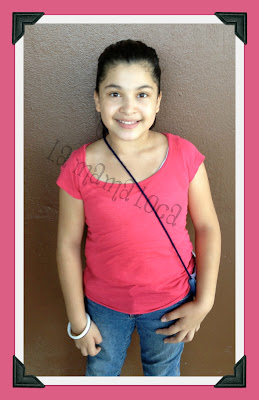One thing that has always made me laugh a little is the general
assumption from most "white Americans" is that all Spanish speaking
people are the same.
In my hometown area, anyone Hispanic, must be Mexican. And of course here in the country illegally.
When
I married a Puerto Rican, I wasn't sure how my redneck family would
react. I'm sure I put the fear of God into Papa the first time he met
my dad. I don't think he said more than 5 words, so my dad wouldn't
hear his accent! To look at Papa, he is fair skinned and pale as me. He
has black hair and deep brown eyes compared to my blonde hair, blue
eyes. Most people didn't believe me that mi suegro is
a red head!
When we got into fostering, we were
hopeful for Hispanic children. We had learned in training that there
was us and one other foster home that could speak Spanish, yet a growing
number of Spanish only speaking children entering care in our county.
Over the course of our fostering years, we fostered 7 children. 6 of
them were Mexican American, 5 of them we adopted, the other is the half
brother of our older three children, who was reunified with their bio
mom.
I must admit that my family was more accepting of
my children than I thought they might be. I did get asked once by an
uncle if the kids spoke "foreign"....I'll just assume he meant Spanish.
In the course of our adoption, we faced some trials. Literally. You can read more about
our journey
on my family/misc blog. We found ourselves in a contested adoption
trial with our older 3 kids' bio father, who had been deported to
Mexico. It turned into a 2 1/2 year court 'battle', despite only
actually going to court 5 full days.
One of the crimes
against us is that we are not Mexican. We could never give the children
their 'real' culture. We are and have always been open to sharing with
the kids about their culture. However, one problem the bio dad/lawyer
had defining was exactly WHAT their culture was.
The
kids were all born in the United States. Smarty Pants went to Mexico
one time when he was a week old, was there for less than two weeks. From
what we've been able to learn, the kids had such a crazy upheaval life
before they came to us, their 'culture' had nothing to do with their
ethnicity, it was trying to survive a life of chaos and neglect.
The
kids didn't eat a lot, if any Mexican food, they existed on cereal and
sandwiches. Their bio parents were Catholic, but in name only. None of
the kids were baptized, nor had they ever been taken to a Catholic
Mass. When asked about any particular family traditions, the kids knew
of none, nor did their bio parents share any. We even offered to take
the kids to Mexico to visit their bio dad and his side of the family one
a year or so, if he would sign over parental rights. Bio dad was given
MANY chances to do the services asked of him by Dept of Children
Services, both here in the states and after his deportation. He refused
to do any of them.
In the end, the judge ruled in our
favor. Yes, there are cultural differences in children being raised in
Mexico, or the States, or Puerto Rico. We've never denied that, nor
have we tried to erase that from them. We have many friends from Mexico
and as is expected, there is no 'one way' to do anything!
From
the food to the celebrations, to even the words/accents used, there is a
mixture. This is the same across the United States as it is in Mexico.
It is also true for all Spanish speaking countries. Spain is as
different from Colombia, as is different from Peru, as is different from
Venezuela, etc.
So we are now in the process of
bringing up our Mexican-American children in Puerto Rico, eating Puerto
Rican food, observing Puerto Rican celebrations/holidays. They will
develop a Puerto Rican Spanish accent (once they are fluent in Spanish
hehe). We have tried to reach out to their bio parents to know what
celebrations and holidays are important to them. We've gotten nothing.
We
talk about Mexico. We have marked on the map the areas their bio dad
lives, his family, the area that bio mom's family came from. We talk
about some of the foods, the history, the 'main stream' culture of
Mexico. Yet this does not define them. Their adoptions are open, so it is possible for them to have a relationship with their bio family as they grow up.
These kids are
definitely on their way to being well rounded, cross cultured kids.
They have Mexican, Mexican-American, Puerto Rican, and Mid-West USA
'gringa' influences. They do not define themselves as one particular
ethnicity. To them, they are just who they are. They have pride in
their mixed heritages.
Now if we can just get them speaking Spanish fluently!



